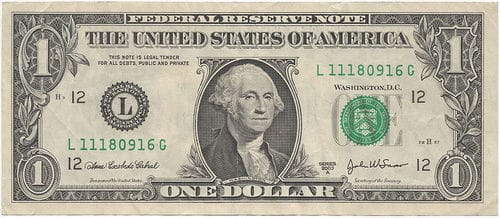If you buy a book at your local bookstore, you have to pay sales tax. But if you buy the same book online, you usually don’t. Is that unfair?
This inequity is the basis of the Marketplace Fairness Act, which is being pushed in Congress by a bipartisan group of Senators. Last week, the act “passed” 75 to 24 in the Senate as a budget amendment. This does not make it law – it merely served to demonstrate support for the act.
It does suggest that it could be passed. It proponents argue that brick and mortar stores should not be burdened with sales tax where Internet retailers are not, and that the lack of sales tax for online sales represents a large loss of revenue for states and local governments that rely on the sales tax to provide “the money for roads, police, fire protection.”
In other words, Internet retailers are moochers, and it’s time that they pay up.
Opponents of the bill, which include the unlikely bedfellows of eBay and conservative think tanks like the Heritage Foundation, criticize the bill as unduly burdening small businesses with complying with sales tax policies of innumerable towns, counties, and states. The bill does require states to simplify their tax policy before they can collect sales tax from online retailers, and exempts businesses with under $1 million in yearly sales. Nevertheless, eBay asked the small businesses that sell in its marketplace to oppose the legislation and push for an exemption of $10 million a year or 50 employees, telling them:
“This legislation treats you and big multi-billion dollar online retailers – such as Amazon – exactly the same.”
The Heritage Foundation argues against that the act is a move of a revenue-hungry government that would force companies “to become sales tax collection agents for the states.” More soberly, critics point out that the act would force companies to “comply with tax laws created by distant governments in which they have no representation, and in places where they consume no local services.”
In either case, the current law is not working. It comes from a ruling in the 1992 Supreme Court case Quill Corp v. North Dakota. The case began when North Dakota tried to tax Quill Corp, an office supply retailer that had no physical presence in the state, for orders made by North Dakota customers. The Supreme Court struck down the tax and ruled that companies only have to charge sales tax on customers if they have a physical presence in the state.
The results can be arbitrary. If you order from the website of a major retailer like The Gap, you’ll likely pay sales tax since The Gap has physical outlets nearly everywhere. But a “physical presence” can be selectively defined to include a sales force or even a warehouse. As a result of this loose definition, Amazon collects sales tax in California, Kansas, Kentucky, New York, North Dakota, Texas and Washington, but nowhere else.
Further, in what came a surprise to this author, Americans are legally obligated to report and pay sales tax. But no one seems to know this.
The passage of an Internet sales tax is likely but not gauranteed. The key seems to be implementing it without harming small businesses and online retail startups.
This post was written by Alex Mayyasi. Follow him on Twitter here or Google Plus.




